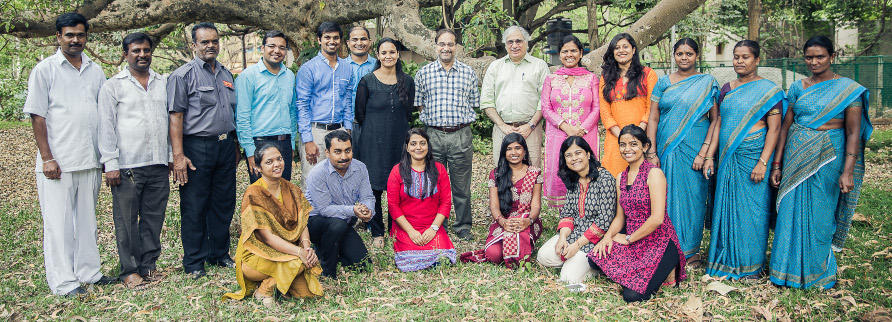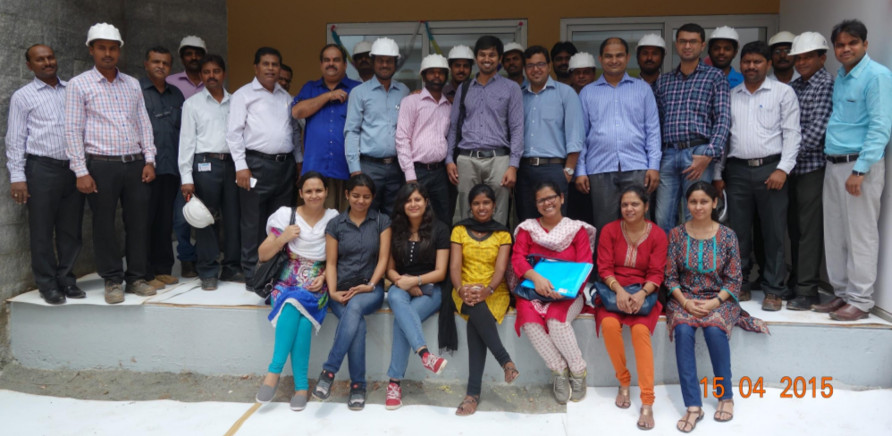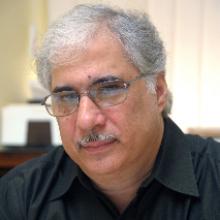Distinguished members of the dais, colleagues, friends and guests, it is my great pleasure to welcome you all to the inauguration event of the ICTS campus, which we have called “Science at ICTS”. I would like to thank you all for coming here today, especially those of you who have come from far away and have landed only a few hours ago.
Over the last 5 ½ years, since the 'Foundation Stone Ceremony' in December 2009, ICTS has travelled a long way. At that time, I had presented a brief history of how the ICTS came about. Let me briefly say that the idea that one can build a top class facility in India was inspired by my visit to the Infosys campus in Bangalore in 2001 with Edward Witten who wanted to visit the `modern temples of India’. Also, the NCBS campus was an inspiration. The conception of the ICTS, its mission and how to go about creating the Centre happened in a long meeting in Santa Barbara with David Gross (Director KITP) in 2004.
To sum it up, the campus is almost done and moving in will begin within the next month. The ICTS campus has facilities to carry out its mission: in-house research, programs, schools and discussion meetings and outreach activities.
I would like to recall that in his speech during the inauguration of the new TIFR buildings on 15 January 1962, Homi Bhabha the founding Director of TIFR clearly stated that:
“The building itself is only a shell to make possible the work that is done inside it. It is by the quality and volume of its scientific work that an institute like this must be judged, by the extent to which it has helped to explore and push back the frontiers of knowledge.”
The first phase of faculty induction is almost over and the present faculty is engaged in various areas of research and programing activities. We keep in mind that 'institutions are built around individuals'.
In-house research is presently organized in 3 broad categories:
- Complex Systems: non-equilibrium statistical physics, fluid turbulence, condensed matter, physical biology, nonlinear dynamics and big data assimilation
- Gravity and Elementary Particles: astrophysical relativity, gravity waves, string theory and quantum gravity and cosmology
- Mathematics: Fluids and experimental mathematics, differential geometry and partial differential equations
Even in a short time, several excellent research contributions have come from the faculty and I hope this trend will continue and gain momentum once they are all settled in their new home...here!
Once again quoting from Bhabha at the annual meeting of the National Institute of Science of India (later renamed the Indian National Science Academy) in October 1963, he spoke at length about the challenges of setting up a scientific institution:
“I feel that we in India are apt to believe that good a scientific institution can be established by Government decree or order. A scientific institution, be it a laboratory or an academy, has to be grown with great care like a tree. Its growth in terms of quality and achievement can only be accelerated to a very limited extent. This is a field in which a large number of mediocre or second rate workers cannot make up for a few outstanding ones, and the few outstanding ones always take at least 10 – 15 years to grow.”
ICTS has striven to create an excellent and modern administrative and technical support staff to manage its various activities, given that ICTS conducts a large number of programs and a very large number of visitors spend varying times at ICTS.
On this too, quoting from Bhabha in the last speech he gave before his death in 1966, he expressed his view of the kind of administration that is needed in an institution of fundamental research:
“The type of administration required for the growth of science and technology is quite different from the type of administration required for the operation of industrial enterprises, and both of these are again different from the type of administration required of such matters as the preservation of law and order, administration of justice, finance and so on.”
Clearly differentiating between the government support and government control, he felt strongly that administrative practices should be aligned with the specific objectives of an institution.
From its inception, ICTS has been guided in its academic planning by a very dynamic and demanding International Advisory Board chaired by Prof David Gross and a Program Committee consisting of distinguished scientists in various areas of research, many are present here today. Their involvement and commitment are crucial in making ICTS an internationally happening place.
What we envisage for the future and what we will need to fulfill the mission of ICTS:
We envisage one of the best theory Centres in the world in the service of science especially science research and education in India. ICTS is a hub where people from the world over congregate to research, teach and learn. Hopefully our Centre will contribute to solving some of the important problems of science and concomitantly enhance the education of our students.
ICTS needs the continuing support from the Tata Institute and the DAE in human resources and financial grants. There needs to be an appreciation that the ICTS is an important catalyst for Indian science in research and education.
Also, given the present situation, ICTS needs non-governmental involvement to carry out its mission in a sustained manner. I am extremely happy that this need has already been recognized, and given our initial performance, the Simons Foundation of USA has awarded us a modest institutional grant to carry out our various activities. I am also glad that Prof Andrew Millis of the Simons Foundation is here with us on the dais.
ICTS also recognizes the value of communicating the excitement of science to school and college students and members of civic society, and hence its faculty and facilities are also geared to various outreach programs. This is part of a broader engagement of our scientists with civic society that we would like to foster. Kris Gopalakrishnan, co-founder and ex-CEO of Infosys, now a member of the Advisory Board, is helping ICTS establish and strengthen this direction.
Thanks:
I would to thank the TIFR and the Department of Atomic Energy of the Govt. of India for the grant of almost 140 crores to build this campus. We look forward to their continued support to fulfill the mission of ICTS.
We are very thankful to NCBS for handholding us these past many years in so many ways; it is an extraordinary example of institutional help within the TIFR system. I would especially like to thank K. VijayRaghavan.
ICTS is over the past five years functioning from the Indian Institute of Science under the aegis of a joint ICTS-IISc program. We thank IISc for hosting us and look forward to a fruitful interaction in the future which will be mutually beneficial.
The ICTS project required extraordinary work and commitment of many people:
Firstly, I would like to thank Prof Avinash Dhar who has worked side by side with me since the creation of this Centre, in all aspects: academic, administrative, architecture, construction.
I would like to thank the entire ICTS staff for their dedication and enthusiasm to work for a fledging institution.

Ms Mukesh Dodain, in-charge of administration at ICTS, without whose boundless energy and courage we could not have come so far.
Thanks on behalf of ICTS to all the members of the DCSEM team for their continuous contribution to the project. It is also unlikely that the campus could have reached where it has without the tireless persistence of Mr Prasanna, on site project engineer from DCSEM.

The campus has many unique architectural features that have been specially designed for a lot of interactive spaces and visitor comfort. It has been a great pleasure to know and interact with Ravindra Kumar, our architect from the firm of Venkataramanan and Associates (VA). Also thank, Naresh Narasimhan of VA and Jahnvi Ashar and Venu who did the detailed design.
The construction company, JMC Pvt Ltd (India) has executed the project... I would like to thank the JMC team... and all the engineers, and the hundreds of workers who have toiled hard for very modest wages to build this campus.
Today gathered here are also family members of ICTS faculty and staff. I would like to thank them for their support to the ICTS members during this nascent period of ICTS.
Spenta R. Wadia
ICTS Campus, Bengaluru, 20 June 2015


